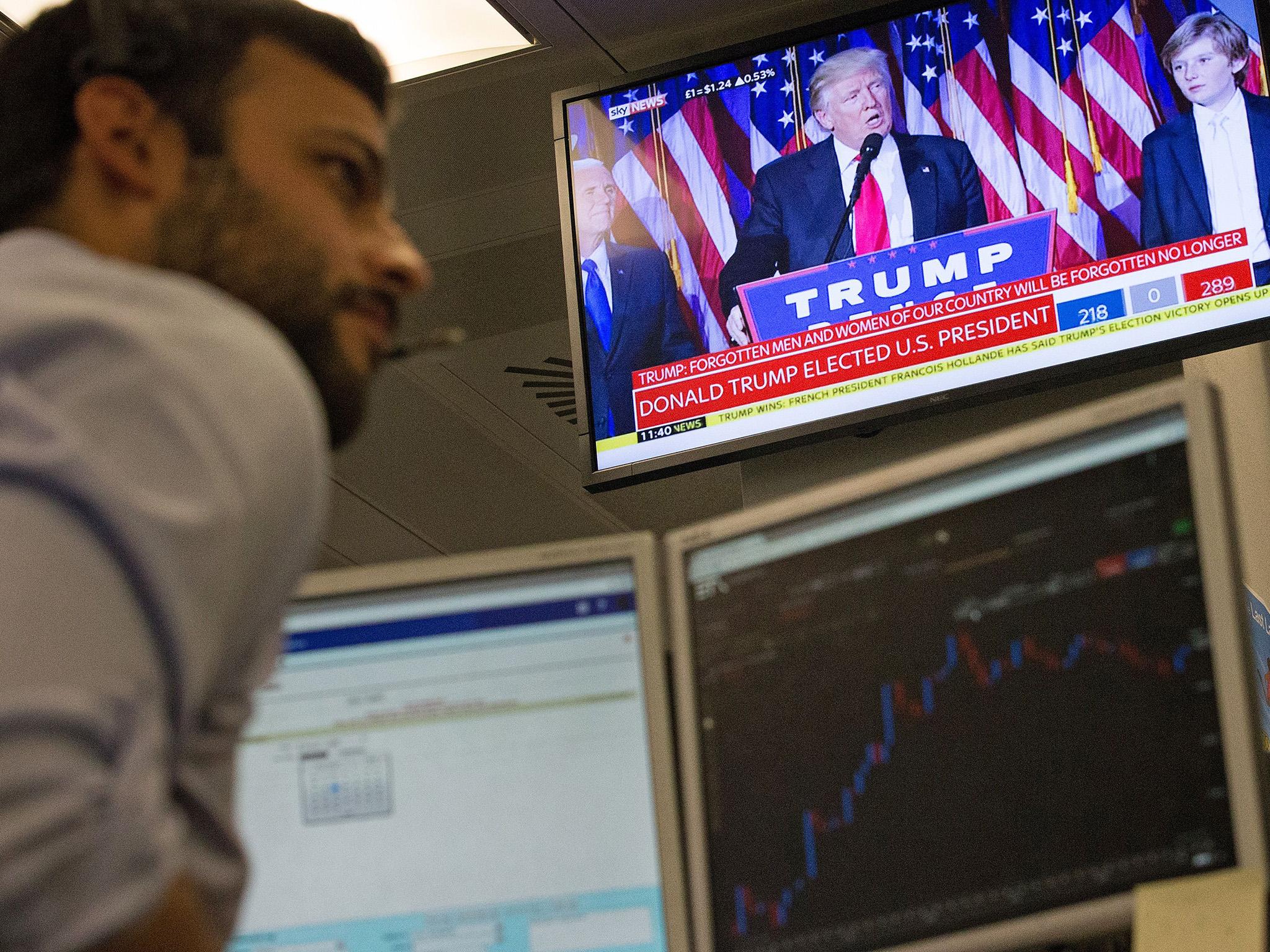The American stock market is inextricably linked to its political system – here's what we can expect after the midterms
The period after midterms has usually been a good time for financial markets – maybe the second two years of this presidency will become a contrast to the first two in economic terms as well as political


In Washington, DC, suddenly it is winter. It is physically winter because a blast of chill air from the north has swept the leaves off the trees and ended what had been a balmy fall. It has knocked a few trees down too. And it is financially winter because all the gains of the year have been wiped out by the fall in share prices in October.
All this has nothing to do with the midterm elections, the results of which are still being evaluated by the pundits, and with a few votes still subject to recount even the final tally is not yet clear. I suppose for the Democrats it is time to be reasonably upbeat having won control of the House, but they are still scarred by the failure of Hillary Clinton to win the White House two years ago to be confident of anything now. As for the Republicans, well compared with the losses that some presidents have suffered in the midterms, the results were not too bad at all. Their hold on the Senate is secure and that will presumably block any legislation they don’t like.
I think for all the acres of punditry occupying the airwaves we just don’t know how this particular divided congress will manage things. Maybe there will be areas of cooperation. Maybe it will be a more effective curb on the excesses of the president. Maybe not.
What we do know, however, is that the period after midterms has usually been a good time for financial markets. I have never seen a satisfactory explanation of why this should be so, except for the very simple one that they frequently result in a division of power and the business community likes having a government that can’t do much. Better a government that can’t pass new legislation than one that keeps on doing so and messes up as a result. I think quite a lot of us could feel a smidgen of sympathy for that stance.
Now set this historical performance of markets after the midterms against the wintery blast of the markets. Asset prices have lost all the ground they made in the previous nine months. This is the sort of retrenchment that happens from time to time – but only every five years or so. That has set the financial community wondering what on Earth is ahead. Put crudely, might gridlock in Washington rescue their portfolios?
Of course there can be no complete answer to that, but we can make a stab at bits of it.
There will not, for a start, be another tax cut. The present one has puffed up the economy this year but at the cost of increasing the federal deficit to 4 per cent of GDP. It will rise further, which will put more pressure on interest rates, but at least the mistake (to run that level of deficit at the top of the cycle must be a mistake) will not be compounded.
However, corporate profits will not rise as fast next year as they have done this. The earnings of the companies in the S&P 500 index are up about a quarter this year. Goldman Sachs estimates they will be up 5 per cent next. That is much more sustainable, but it is not a recipe for a continuing share boom.
The other big shift in sentiment that has happened has been a reassessment of the value of high-tech America. You may remember that in August Apple became the first company in the world to be worth $1tr. It shot through that barrier and its price kept on climbing. Well, Apple is not a trillion-dollar company any more. Its value on Friday was $970bn. That is still huge by any standards but the decline does signal some sort of turning point.
Actually this rethink is probably both healthy and overdue, and I can’t see any way politics will change it. That leads to a wider thought. Maybe the second two years of this presidency will become a contrast to the first two in economic terms as well as political. Trump himself will not change. But he will be operating in a different economic climate. Instead of the bull market, the keep-the-accelerator-to-the-floor mood since he was elected, there will be a transition to a more cautious assessment of the economy. He will inevitably find that rather difficult.
Downturn in 2020, just in time for the presidential election? Well, some sort of slowdown is inevitable, with unemployment down to 3.7 per cent, the lowest for 49 years. It won’t go on down forever. But calling the details of the economic cycle is a mug’s game. All we can say is that we know a cycle exists, but each boom and each slump is different.
A chastened Trump? I think not. A calmer and more consistent one? Nope. Stable and rational financial markets? No chance of that, for sure. But a continuing reasonably successful American economy? Well, yes, but despite the politics, not because of them.


Join our commenting forum
Join thought-provoking conversations, follow other Independent readers and see their replies